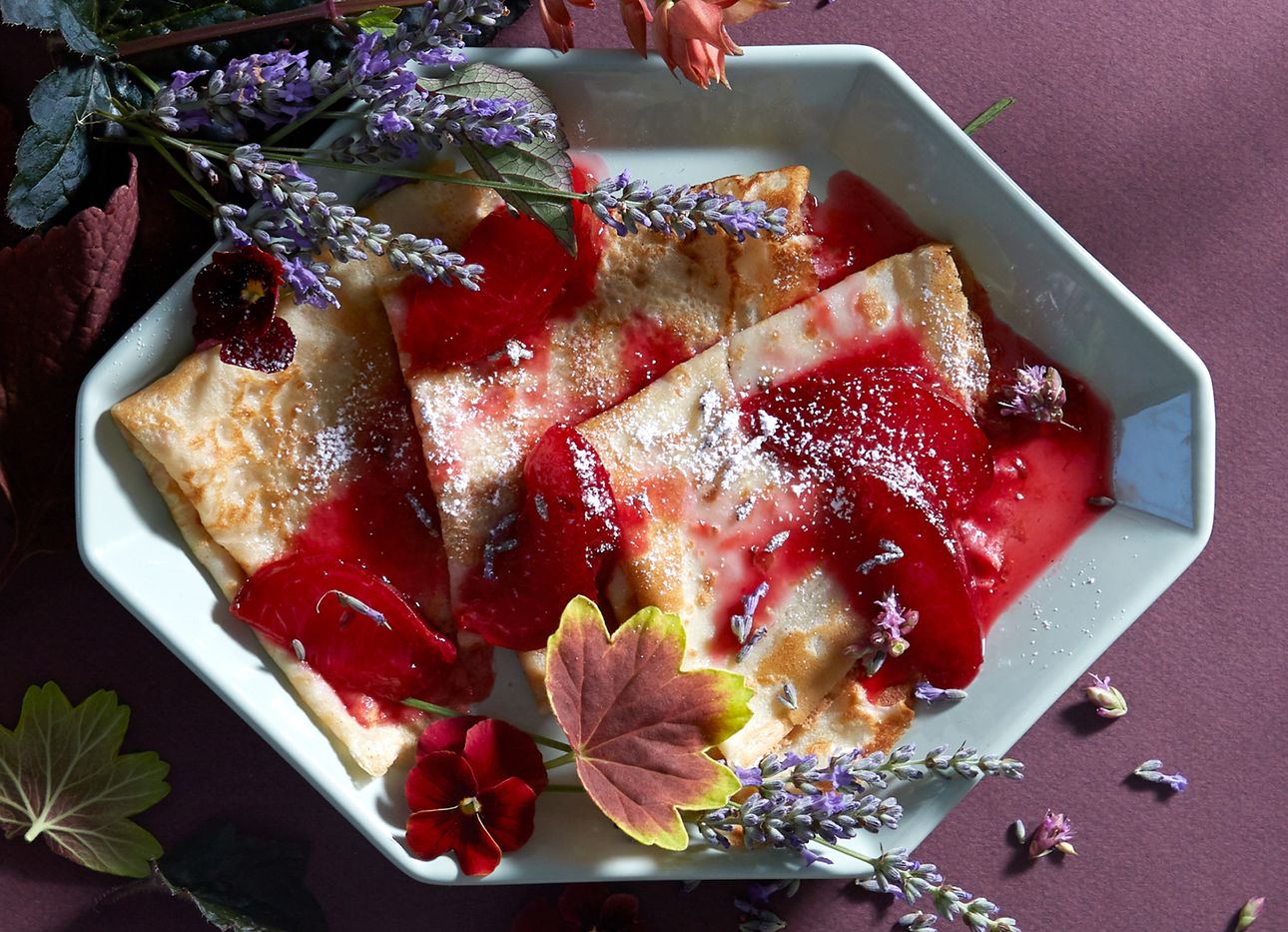
A Practical Guide to Making Food With Flowers
About a decade ago, Cassie Winslow, a Northern California–based baker and cocktail-maker who runs the blog Deco Tartelette, started experimenting with edible flowers, concocting condiments such as rose salt and lavender sugar, and incorporating them into her drinks and food. She was instantly hooked. “Edible flowers add a beautiful touch of color and flavor to everyday dishes,” she says. “It’s fun to mix things up in the kitchen. I’ve found that I use dried edible flowers just as often as I use other, more common dried herbs in my cooking, like rosemary, thyme, and oregano.” In 2019, Winslow gathered her beverage recipes into the book Floral Libations, which includes instructions for how to make drinks ranging from dandelion tea cinnamon cappuccinos to plum rosewater gin and tonics. Now she’s sharing her expertise in edible flora within the culinary realm with a cookbook, Floral Provisions (Chronicle Books), out this week.
Complete with lush photography, tips and tricks for sourcing edible blooms, and dozens of recipes for dishes and desserts, the book is a practical guide into the world of palatable blossoms. Winslow’s recipes for rose-petal French toast, raspberry elderflower scones, and lavender crepes are perfect for Sunday brunch, while her floral cheese board and calendula, gouda, and bacon quiche make for alluring hors d’oeuvres. There are also instructions for making what Winslow considers pantry staples, such as jasmine sugar, lavender syrup, and rose geranium and strawberry jam.
While these recipes might sound like the stuff of fairy tales, adding blossoms to a meal isn’t as out of reach as it may seem. “Organic edible flowers, especially dried edible flowers, have become widely available and easy to source,” Winslow says. “Simply having a batch of homemade rose salt on your counter will encourage you to sprinkle it on everything from chocolate ice cream to your morning poached egg.” Eating certain varieties can also provide health benefits: Elderflower, for instance, grows antioxidant-rich flowers and immune system–boosting berries, while salad burnet, a member of the rose family, has astringent properties that can aid in digestion.
For those who fear that edible flowers will overpower their plates or leave meals tasting like perfume, Winslow recommends using them in moderation. “Rose water is quite strong, so a drop goes a long way,” she says. “And adding a pinch of garden party sugar to your coffee, instead of regular sugar, will add just the right amount of floral goodness.”